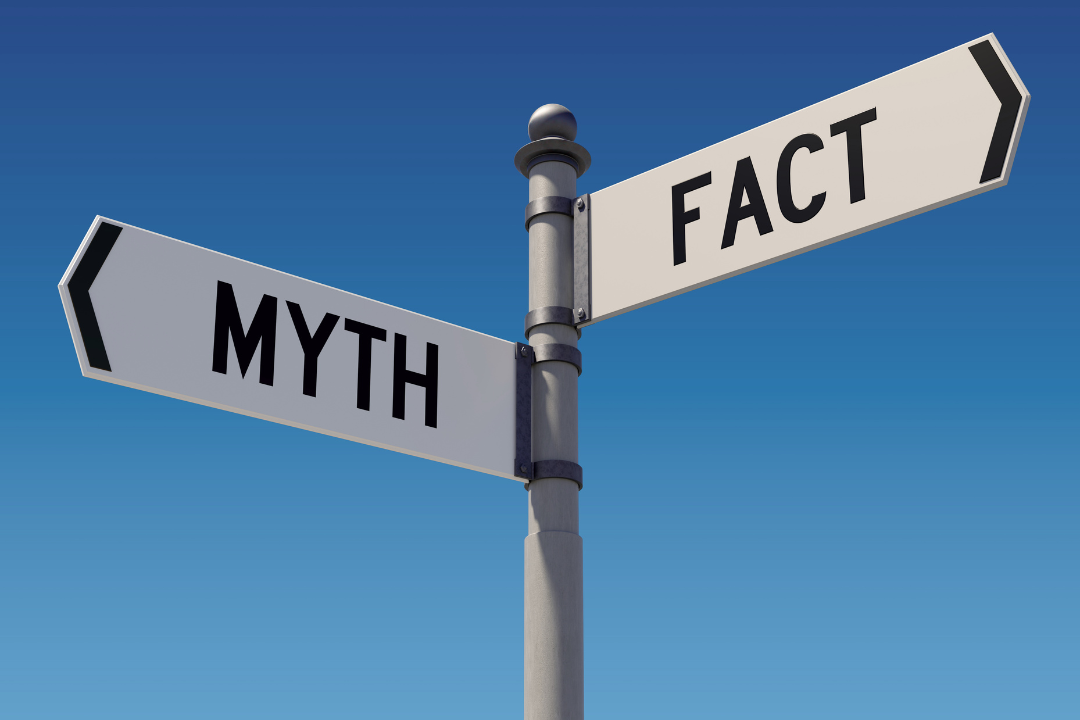Myth: You Shouldn't Check Your Credit Score
When you check your own credit score, this is known as a soft inquiry and it does not lower your credit score! Hard inquiries, such as a lender or card issuer pulling your information in response to a credit request, can lower your score, but monitoring your own information won't. In fact, checking your score is an important way to stay on top of your credit and correcting any errors will raise your score. Plus, youll be able to monitor it and keep safe from fraud.
Myth: There's No Risk to Co-signing a Loan
Co-signing a loan can be a good way to help a family member or friend with limited credit history secure a loan or get a better interest rate, but you'll be putting your credit score at risk. Being a co-signer means being responsible for the ENTIRE loan amount, so if the primary borrower defaults on the loan or misses a payment, your credit score could be damaged.
Myth: Carrying a Balance Builds Credit
You should always aim to pay your credit card balance in full every month because carrying a card balance does not build credit - it actively hurts your credit score. The higher your balance, the higher your credit utilization rate, which is the opposite of what a healthy credit score needs. Plus, a credit card balance will only increase your debt over time, due to interest payments. If that's not currently possible, aim for less than 30% of credit utilization for the healthiest score option.
Myth: Canceling a Card Improves Your Credit
Paying off credit card debt improves your credit score, but the same cant be said for canceling a card. Even if the card has no outstanding balance, having one fewer credit account lowers your total available credit, which could negatively impact your score. Then again, if the card has high annual fees or you're concerned about overspending, it might be more beneficial to close the card. If you're not using a card that you've had for a while, don'tt get rid of it if it's not a burden. It lengthens your credit history which benefits your credit score.
Myth: It's Smart to Make Large Purchases on Credit
There are many advantages to shopping with a credit card. Assuming you pay your balance in full every month, you can earn points and build your credit score. However, making large purchases on credit may not always be best. Putting rent or medical expenses on a credit card will usually incur an additional transaction fee from the merchant; and, if your card payment is overdue, you'll be looking at hefty interest too. Instead, see if you can work out an installment plan, or research the possibility of taking out a personal loan which may give you a lower interest rate. Research, research, research.
Myth: Only Wealthy People Have High Credit Scores
A credit score doesn't measure your salary, assets, or wealth. Your credit score is based on the length and payment history of your credit accounts, how much debt you owe, and how much credit you can access versus how much you are utilizing. For people of any income level, the key to improving a credit score is paying down debt. If you're concerned about this, contact us about debt repayment plans, which may include the option to refinance or consolidate debt at a lower interest rate.
Myth: It's Critical to Have an "Excellent" Credit Score
A credit score of 800 and up is considered "Excellent". Dont stress though. A credit score of 620 or higher will get you the most important credit benefits, including the ability to qualify for a conventional home loan. At the same time, a higher credit score will almost always improve your chances of approval and possibly get you a better interest rate, so aim high.

